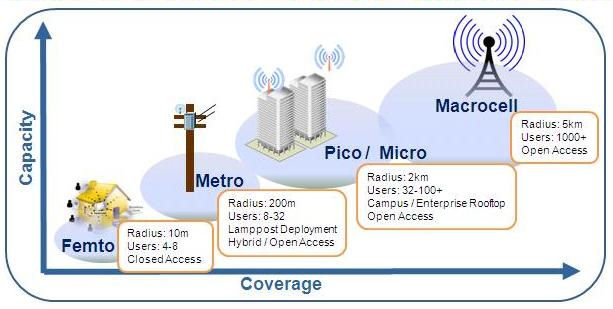Continuous demand
You may well have never heard of Continuous Computing, or femtocells for that matter, but when we saw the former was announcing software partnerships with the likes of Qualcomm, TI, Broadcom and Freescale, we thought it was worth looking into.
Continuous has a software product called Trillium that is used by small wireless base stations. If you're in the wireless base station game, it seems, Trillium is something you want.
"Qualcomm is collaborating with Continuous Computing for multiple reasons: key wireless technology leadership, broad global presence in femtocell products and a reputation as an innovative and responsive telecom software supplier," said Ed Knapp, SVP of bizdev and engineering at Qualcomm.
"In the base station market, the ability to quickly deliver tailored solutions capable of handling real-world bandwidth demands has been vital to our success," said Kathy Brown of TI. "Continuous Computing's Trillium software and professional services offer us the flexibility and instant assurance that we are addressing our customers' customization, system integration and product delivery requirements in the swiftest manner possible."
Now there's quite a lot of semi-intelligible jargon and corporate speak there, but what it comes down to is that chip-makers want to be seen to offer the best base station functionality and Trillium is being positioned - by its PR people at least - as the default software standard for this stuff.
But why should the rest of us care one way or the other? Well if, like many of us, you suffer from a frustrating combination of variable mobile signal and sometimes surprisingly high mobile data bills, small base stations, or cells, are a potential solution.
Here's what Manish Singh, VP product line management at Continuous, had to say when we asked him to summarise the announcement with end users in mind: "With Trillium Software ‘inside the box', end users can have the peace of mind that their small cell product - whether residential, enterprise or metro - will function reliably as it is field-hardened with proven interoperability."
In effect, and bear in mind this is a very simplified description, femtocells act as an adaptor to connect your phone to the fixed broadband network. But unlike Wi-Fi the wireless connection happens over mobile phone spectra, which means it covers voice as well as data.
The most commonly cited cell is the femtocell, which has sufficient wireless range to service a house or small office. Picocells can be used to service larger buildings, while microcells could, in principle, supplement the mobile coverage of a whole block.
If this all sounds somewhat futuristic, it isn't. Vodafone, for example, already offers a femtocell product it calls Sure Signal. But the fact that Vodafone has made so little noise about it, charges 50 quid, and that it seems to be aimed primarily customers with a weak mobile signal, makes us wonder how seriously the femtocell is being taken as a mobile data alternative, as opposed to Wi-Fi.
The advantages femtocells seem to have over Wi-Fi are instant connectivity and voice support. On the other hand pretty much all smartphones have Wi-Fi chips these days and, unlike femtocells, Wi-Fi is already pretty ubiquitous. If fact, there's no reason for anyone with access to Wi-Fi to have mobile data activated on their phones at all as far as we can tell.
Femtocells have been talked about in the wireless world for years now, and for a while were viewed as a solution looking for a problem. Well that problem is very apparent now with the explosion in mobile data consumption. We're constantly being told how mobile networks are creaking under the strain (and other such dramatic metaphors) of all the data traffic, and that alternatives must be found before... something bad happens.
But if this is such a terrible thing for operators, who let's not forget paid zillions of pounds for the privilege of doing just this a decade ago, why aren't they doing more to promote femtocells? We suspect you might find the answer to this question the next time you open your mobile phone bill and look at the amount you're paying for data.














